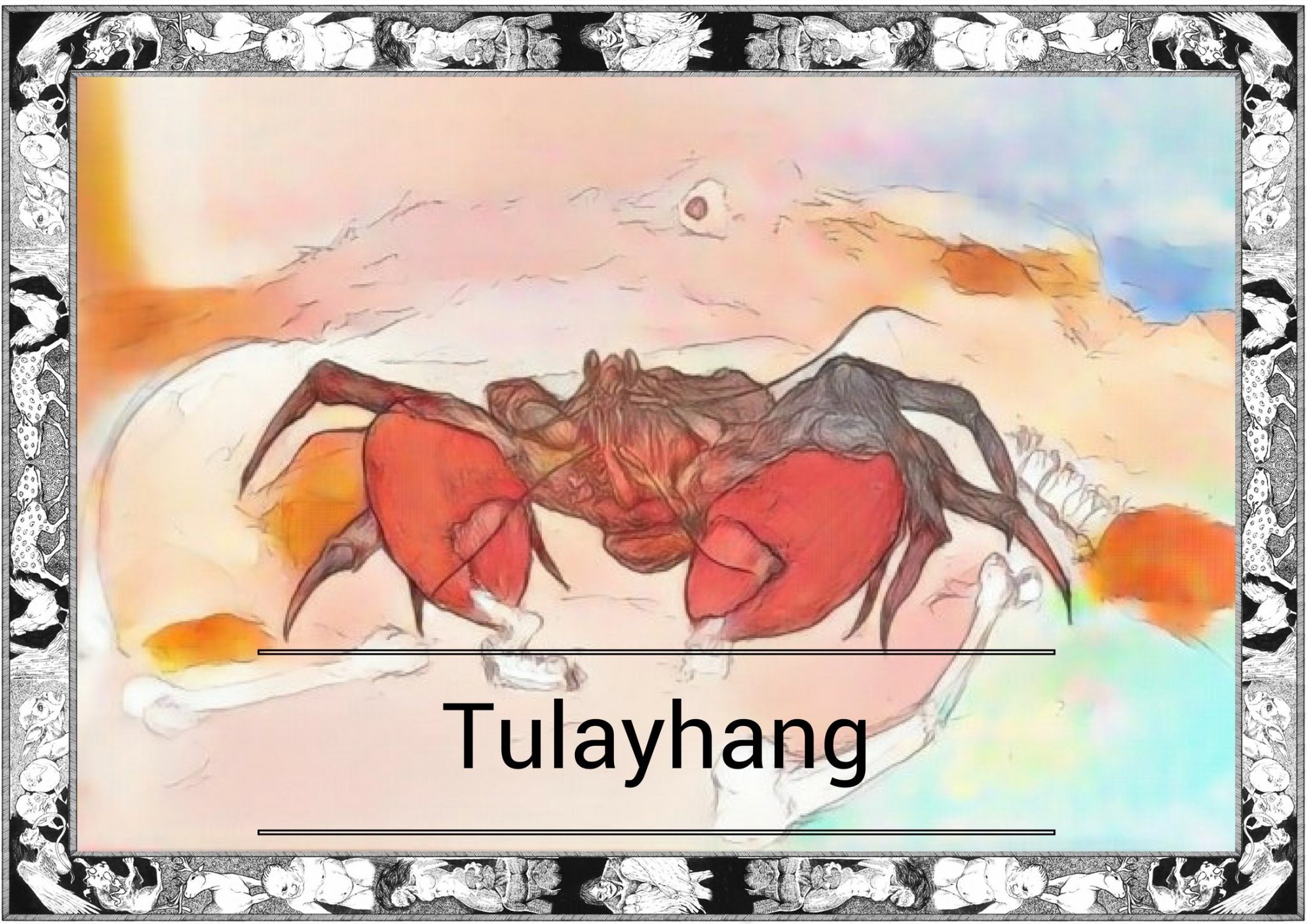
*Note this story is in Tagalog
Wala sino man ang hahawak sa isang tulayhang. Biniyayaan tayo ng kapangyarihan sa lupaing ito.
Hindi tayo isang pangkaraniwang alimango. Mga alimangong nagpapahuli sa mga tao para lamang kainin. Katulad ng isang iyan? Dinukot mula sa putikan, katulad ng kanilang uri. Narinig ko na binabalik ng mga tao ang mga alimango sa tubig, pero hindi sa tubig na alam natin.
Sa sobrang init ng tubig pinapatay sila nito. Hindi naman agad-agaran, mayroong pa silang oras para sumigaw. Nakakapangilabot.
Bumabalik ang alimango ng pira-piraso, pero hindi lamang iyon ang tinatapon ng mga tao. Marami silang tinatapon sa ilog, mayroong magaganda na puwedeng gawing palamuti, pero may mga nakakadiri.
Minsan masagwa ang amoy, ang lasa at paiba nang paiba ang tubig habang lumilipas ang panahon, may pagkakataon pa na tumatambak ang mga tinatapon nila kung saan nakabuo na ito ng gabundok na kalat. Kalat, iyan sa tingin ko ang tawag nila sa mga bagay na inayawan na nila, narinig ko lang ito sa isang isda.
Kaya binigyan nating mga tulayhang ng lugar ang mga engkanto. Ito ay dahil alam nila ang kinakailangan nilang gawin sa mga tao at binigyan tayo ng kapangyarihan para bigyan ng sakit ang kahit sinong taong magbabalak sa manggulo sa ating tirahan.
Huwag mo akong mamasamain! Karapat-dapat lang iyon sa mga tao dahil sa pambabastos nila sa kalikasan, laging nagtatapon kung saan-saan na parang hindi sila nakakaabala. Narinig ko na pati ang mga siyokoy sa karagatan ay hindi makahinga dahil sa kanilang mga basura. Isa pa iyong salita para sa kanilang kalat. Sa sobrang dami nilang basura, marami silang katawagan para dito.
Sa tingin ko iyon yung aral para sa kanila. Kailangan nating bantayan ang mga tao dahil masasama silang nilalang. Huwag kang matakot at hindi gamitin ang iyong kapangyarihan, binigay iyan para ipagtanggol ang iyong sarili kung sakaling mapagkamalan kang isang alimango.
Hanggang sa lulutang kang gutay-gutay sa tubig at mapapaisip ka na lang kung bakit hindi ka nakinig sa iyong nakatatanda.
=————————————————=
*English Version
No one would ever dare touch a tulayhang. We are blessed by our masters with some power over our domain.
Not like those mud crabs we look like. Those idiots don’t even know when they’re being caught to be eaten by the humans. See that one? Just grabbed from the mud, just like their kind always are. I’ve heard that humans throw crabs back into the water, but not regular water.
The water’s so hot it kills them. Not instantly though, there’s enough time to scream. Then the humans eat the muscle and the claws off. Terrible.
The mud crab will come back in pieces, but that’s not the only thing the humans will throw. Oh they throw so many things back into the river some are nice and you can decorate your home with them, but others are just nasty.
Sometimes they smell and taste disgusting and the water just feels different for weeks on end, other times they just pile up what they throw until we’re all living on a gigantic mountain of human trash. Trash, I think that’s what they call the things they don’t want to have anymore, I heard it from some fish.
That’s why we tulayhang threw our lot in with the enkantos. They know what it’s like to have to deal with the humans and so gave us the power to give illness to any human that dares disturb us in our holes.
Now don’t look at me like that! The humans deserve it for aggravating the natural order, always throwing their trash around like it’s not going to bother anyone. I heard that way out in the ocean even the siyokoys are suffocating on their garbage. That’s another word for trash. Humans have so much of it that they need more than one word to describe it.
I guess that’s the lesson. Humans are just terrible beings that we have to watch out for. Never be afraid to use the powers your master gave you to defend yourself, because you never know when the humans will think you’re a mud crab.
Then you’ll be swimming in pieces in the water, wondering why you didn’t listen to the wise old tulayhang.
=————————————————————-=
*Tagalog is an Austronesian language spoken as a first language by a quarter of the population of the Philippines and as a second language by the majority. Its standardized form, officially named Filipino, is the national language of the Philippines, and is one of two official languages alongside English.
Written by Karl Gaverza
Translation by Emman Bernardino
Copyright © Karl Gaverza
Translation Copyright © Emman Bernardino
Inspired by the Tulayhang description in The Remnants of the Great Ilonggo Nation. Sebastian Sta. Cruz Serag. 1997. pg 61
Tulayhang illustration by Harold Juab
FB: ArTwisted mind of Juabexuz
IG: https://www.instagram.com/
